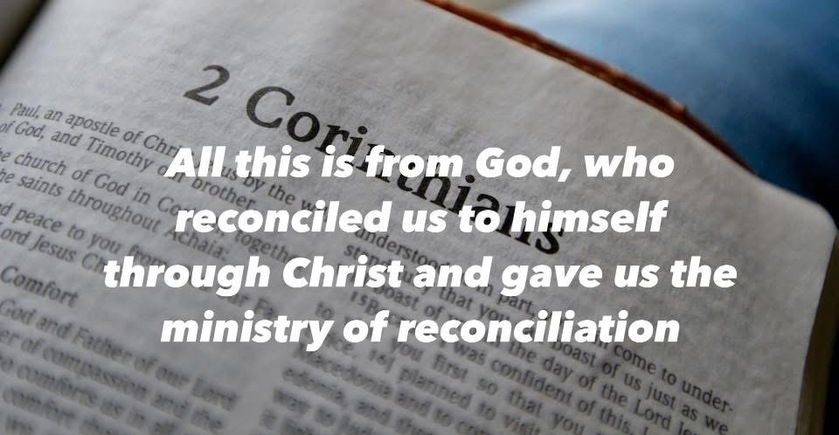Why Isn’t Jesus Enough? Confronting the Idolatry of Human Traditions
John 5:22-24
"For the Father judges no one, but has given all judgment to the Son, that all may honor the Son, just as they honor the Father. Whoever does not honor the Son does not honor the Father who sent him. Truly, truly, I say to you, whoever hears my word and believes him who sent me has eternal life. He does not come into judgment but has passed from death to life."
One of the marks of a false Christian cult is to not honor the Son of God, Jesus Christ. Attacking and dishonoring the second person of the Godhead (the Father, Son, and Holy Spirit) is a sure sign of an antichrist program. The New Testament, particularly in passages like 1 John 2:22-23 and 2 John 1:7, warns against teachings that reject Jesus’ divinity or His role as the Christ, labeling such beliefs as characteristic of an "antichrist" spirit. Diminishing Jesus’ deity, rejecting the authority of Scripture, or misrepresenting the Holy Spirit’s work are hallmarks of this falsehood.
This can manifest itself in denying Jesus’ incarnation, His atoning work, replacing him with substitute means and persons of mediation, or casting doubt on His equality with the Father, all of which distorts the gospel. Similarly, attacking the integrity of God’s Word or the Spirit’s role in illuminating truth (John 16:13) further reveals a departure from a gospel based Christian faith.
Jesus declares,
John 5:30
"I can do nothing on my own. As I hear, I judge, and my judgment is just, because I seek not my own will but the will of him who sent me."
This emphasizes His complete alignment with the Father’s will, underscoring the unity of the Trinity. Denying Jesus’ divine authority or separating Him from the Father, as false cults often do, contradicts this unity and dishonors both. Even joining him with other mediators is a form of dishonor, for no other has been asked for or given permission to speak with him outside of the one and only agreement Christ gave all...
"Go into all the world and preach the gospel to all creation." (Mark 16:15)
The unity of the Trinity; Father, Son, and Holy Spirit, demands that Jesus be honored as the sole divine mediator, and any attempt to join Him with other mediators or authorities dishonors His unique role and the Father’s will. That's undeniably true. And likewise, any attempts to replace the works of the Holy Spirit with the works of others also dishonors the Father. Any teaching that introduces other mediators, whether living human figures, false prophets, or alternative spiritual authorities (e.g. angels, deceased saints), undermines this exclusive authority.
In John 5:43, Jesus critiques those who reject Him and tend to accept others who come in their own name, a hallmark of false cults or antichrist programs. Grace and truth come through Jesus Christ. This is not negotiable. And this absolute truth should not be neglected or overlooked to allow for human traditions, causes and superstitions to thrive.
And yet this sort of thing has been going on since the beginning. This aligns with the antichrist spirit described in 1 John 2:22-23, which denies the Father and the Son by rejecting Jesus’ divine identity and mission. By accepting "another" who comes in their own name, such groups dishonor the Father and the Son, as Jesus warns in John 5:23.
In John 5:30-47, Jesus goes on to emphasize that eternal life and salvation come through believing in Him and the Father who sent Him (5:24, 38-39).
Why do you suppose it was necessary for him to keep drilling down into this theme, especially among those who are searching the scriptures day and night?
Jesus’ persistent emphasis on eternal life and salvation coming through belief in Him and the Father who sent Him in John 5:30-47, particularly when addressing those who diligently search the Scriptures, reflects both the spiritual condition of His audience and the critical importance of correctly understanding the purpose of Scripture. Jesus directly addresses the religious leaders’ diligent study of the Scriptures, saying...
"You search the Scriptures because you think that in them you have eternal life; and it is they that bear witness about me, yet you refuse to come to me that you may have life" (John 5:39-40).
Why was it so difficult for them to just accept and follow Jesus Christ and the witness that the Father provided in the scriptures they adored? And yet they will revere a person who has passed on into his heavenly reward, that person gets their devotion. Why?
I think it stems from a combination of human nature, religious entrenchment, and spiritual blindness, which are contrasted with the posthumous devotion often given to figures after their death. We see this today in the devotion and veneration of the mother of Jesus and multitudes of others who have gone off into glory in death.
This phenomenon, both in Jesus’ time and today, reflects a recurring pattern where the living truth of Christ is resisted, and meanwhile deceased figures are often idealized or venerated in ways that can obscure the exclusive honor due to the Son of God.
So, what's at the heart of this timeless trend?
John's gospel explains it for us. Human nature inclines toward pride, self-reliance, and the desire for approval, as Jesus critiques in John 5:44:
"How can you believe, when you receive glory from one another and do not seek the glory that comes from the only God?"
The Priests, the Scribes, and the other religious leaders prioritized their own status and the praise of their peers over submitting to Jesus, whose claims challenged their authority. And on a laity level we have similar concerns; social, economic, and cultural norms help to create and substantiate these trends. Today, this manifests itself in the human tendency to gravitate toward traditions, figures, or causes that affirm personal or cultural identity rather than fully embracing the radical call to follow Christ alone in devotion and worship.
Ask yourself, "why isn't Jesus enough?"
Honestly, why?
What is he lacking? Where is the need? What evidence is there that there is a need, so much so that your faith won't endure in Him alone? Why do you need Jesus plus?
I know it's convicting but I don't apologize for this position. Why? Because John chapter five shows us Jesus unapologetically addressing this and challenging those traditions.
These human conditioned false claims and promises must be challenged because in reality, Jesus lacks nothing. Scripture presents Him as the complete and sufficient source of grace, truth, and eternal life (John 1:17, 5:24; Colossians 2:9-10). The perception that He is "not enough" for some stems not from any actual lack in Christ but from human nature, cultural influences, and spiritual dynamics that obscure His all-sufficiency. Fact of the matter is, human nature craves control, affirmation, and tangible expressions of spirituality, as seen in the religious leaders’ desire for "glory from one another" (John 5:44). Jesus’ call to faith in Him alone (John 5:24) requires surrender, humility, and trust in an unseen God, which can feel intangible or insufficient to those accustomed to visible markers of religious identity.
Q: Do you want to know why the Jews, in the time when Jesus walked the earth, devoted themselves to the law of Moses and refused the Messiah standing before them?
A: Moses was dead. Dead men tell no tales, but the living tell the story for them.
The living invents the narrative and manipulates the propaganda. The story is theirs and it is projected upon the dead persons memory. And in this way the story is managed for their own benefit.
By controlling Moses’ narrative, they could maintain their authority, cultural identity, and religious system, benefiting themselves while rejecting the living Messiah who challenged their control. This dynamic, which is rooted in human nature, religious entrenchment, and spiritual blindness, explains why Jesus wasn’t "enough" for them, not because He lacked anything, but because His presence demanded faith, surrender, and a rejection of their curated narrative.
And so, our lesson today in John chapter five is a warning against veneration of figures like Mary and other deceased saints. This teaching, directly from Christ himself, should highlight the ongoing relevance of this pattern of human error, urging believers to ensure that their faithful devotion aligns with the absolute truth of Christ alone as the source of grace and eternal life. It does nothing to harm one's faith or spiritual integrity to examine one's spiritual focus. It should be a common practice among the followers because it's very easy for false beliefs to creep in.
Keep your lamps trimmed appropriately. The veneration of figures like Mary or deceased saints, while often sincere, risks repeating the same error if it overshadows the absolute truth that grace and eternal life come through Christ alone (John 5:24; John 1:17). And frankly friends, it's absolutely unnecessary.
Jesus’ teaching in John 5 serves as a direct warning against allowing such human traditions, figures, or causes to compete with His exclusive role as the mediator (1 Timothy 2:5) and the source of salvation. And his warning should not be ignored or brushed aside by our own personal feelings on the matter. Sometimes we get stuck up on our knees in reverence for our traditions. We worship the tradition. We love our traditions. We seek the approval of our traditions. Our tradition is our God. It's insidious the way human traditions can eclipse the absolute truth of Christ’s sufficiency.
It's a subtle and often times beautiful shift into idolatry. It feels "right", as we take our focus off of Jesus Christ and apply it to another. Cultural practices, like festivals or rituals, often become sacred cows, and questioning them feels like betraying one’s identity, echoing the Jewish leaders’ entrenchment in their priestly systems. And likewise social approval within a religious community, can drive our devotion to those traditions, mirroring the Jewish leaders’ desire for human glory (John 5:44).
The parallels are undeniable, and Jesus' cautions should be heeded. When our traditions become "our God," it usurps Christ’s place, leading to a faith that is more about human constructs than the living truth of Jesus.
Now, go in peace, in Spirit and in truth.
Amen.




















